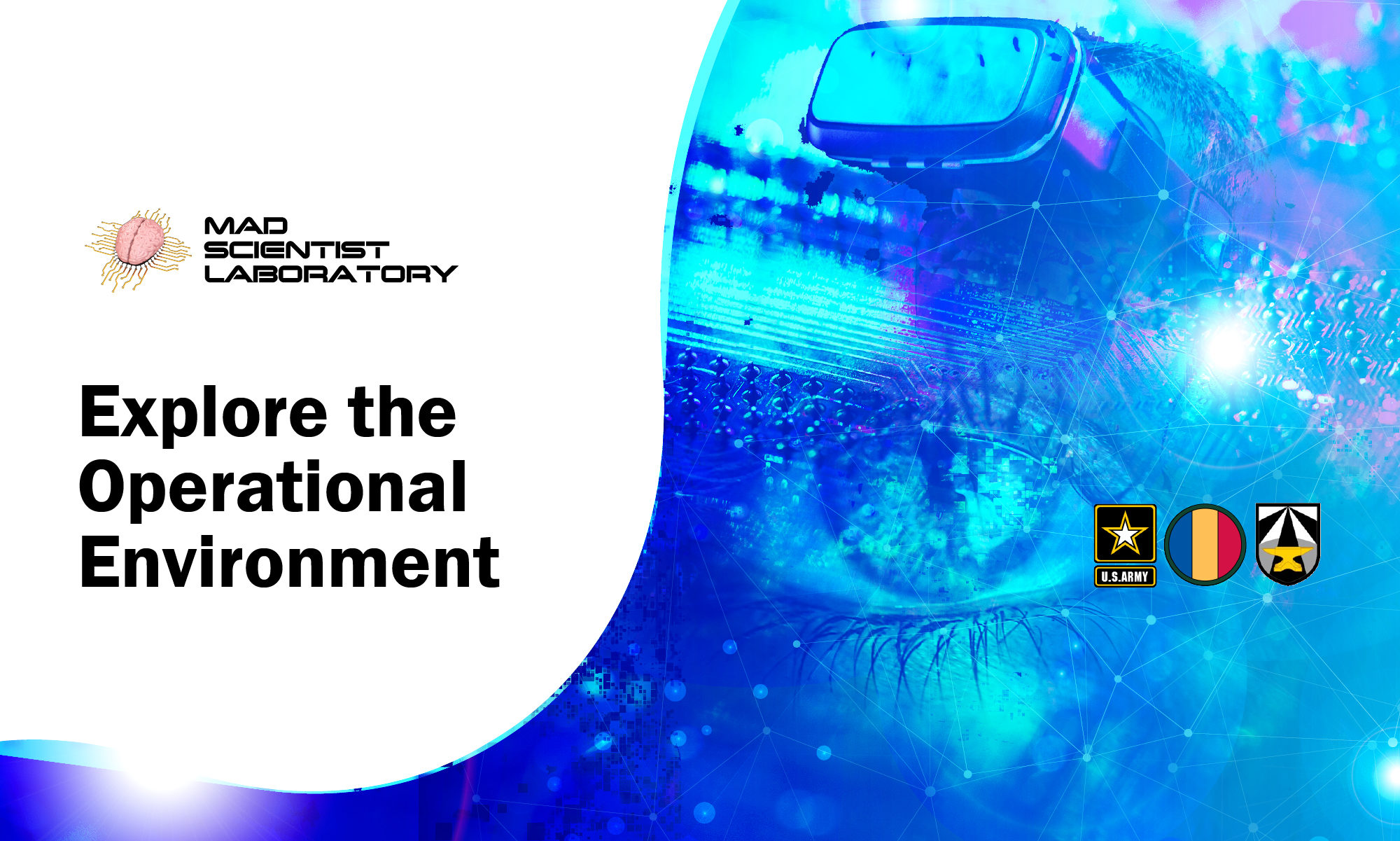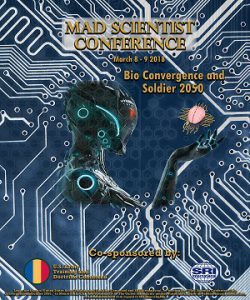 (Editor’s Note: Mad Scientist successfully facilitated the Bio Convergence and Soldier 2050 Conference on 8-9 March 2018 with our co-sponsor, SRI International, at their Silicon Valley campus in Menlo Park, California. With over 400 live and virtual participants, our first West Coast conference brought together World class expertise in biology and the tech convergences that will have a significant impact on the changing character of future conflict.)
(Editor’s Note: Mad Scientist successfully facilitated the Bio Convergence and Soldier 2050 Conference on 8-9 March 2018 with our co-sponsor, SRI International, at their Silicon Valley campus in Menlo Park, California. With over 400 live and virtual participants, our first West Coast conference brought together World class expertise in biology and the tech convergences that will have a significant impact on the changing character of future conflict.)
Bioengineering is becoming easier and cheaper as a suite of developments are reducing biotechnology transaction costs in gene reading, writing, and editing. The Internet of Living Things (IoLT), operating across space and time, and the integration of bioengineering tools (e.g., Genome editing tools such as CRISPR, Talon, ZFN; molecular printers; and robotic strain engineering platforms), big data, high-powered computing, and artificial intelligence are facilitating this revolution. The resultant explosion in knowledge regarding the human body and the brain offers phenomenal opportunities to improve Soldier lethality and survivability.  This will be accomplished through improved cognitive and physical skills, as well as maintaining the critical role of human judgement with the ever increasing machine speed we will find on the future battlefield.
This will be accomplished through improved cognitive and physical skills, as well as maintaining the critical role of human judgement with the ever increasing machine speed we will find on the future battlefield.
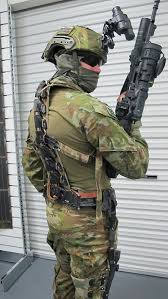 1) Prototyping: Innovation has shifted from government demand signals and funding to the incredibly fast paced innovation in the private sector. Emerging products that enhance physical (e.g., Exoskeletons) and cognitive abilities (e.g., Pharmaceuticals) are almost entirely in the commercial sector. The military must determine what is applicable to warfighting and integrate from the commercial space to the defense sector. Prototyping and experimentation will be critical.
1) Prototyping: Innovation has shifted from government demand signals and funding to the incredibly fast paced innovation in the private sector. Emerging products that enhance physical (e.g., Exoskeletons) and cognitive abilities (e.g., Pharmaceuticals) are almost entirely in the commercial sector. The military must determine what is applicable to warfighting and integrate from the commercial space to the defense sector. Prototyping and experimentation will be critical.
2) Personalized Warfare: The mapping of the human genome and the ongoing Human Brain Project  offer unprecedented advances in medicine and the neurosciences, but also major vulnerabilities to Soldiers and the homeland. With advanced biological technology evolution comes a host of moral challenges, security vulnerabilities, and new threat vectors. In the future, protecting one’s genomic information will require safeguards similar to how we currently protect our digital identities. We will be more vulnerable to advanced bioweapons and information warfare available to states and non-state organizations.
offer unprecedented advances in medicine and the neurosciences, but also major vulnerabilities to Soldiers and the homeland. With advanced biological technology evolution comes a host of moral challenges, security vulnerabilities, and new threat vectors. In the future, protecting one’s genomic information will require safeguards similar to how we currently protect our digital identities. We will be more vulnerable to advanced bioweapons and information warfare available to states and non-state organizations.
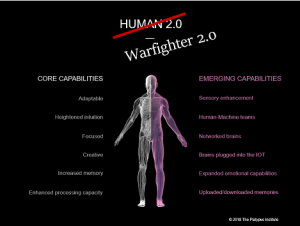 3) Customization: Advances in biology offer much greater customization in medicine which could improve how quickly our Soldiers learn and how they handle stress and anxiety associated with combat zones. Human 2.0 will have direct Warfighter applications, providing Soldiers with sensory enhancements, human-machine teaming, brains plugged into the Internet of Battle Things (IoBT), and uploadable / downloadable memories. Customization of battlefield medical care will be enabled by advanced diagnostics worn by Soldiers (uniforms and equipment) and eventually embedded.
3) Customization: Advances in biology offer much greater customization in medicine which could improve how quickly our Soldiers learn and how they handle stress and anxiety associated with combat zones. Human 2.0 will have direct Warfighter applications, providing Soldiers with sensory enhancements, human-machine teaming, brains plugged into the Internet of Battle Things (IoBT), and uploadable / downloadable memories. Customization of battlefield medical care will be enabled by advanced diagnostics worn by Soldiers (uniforms and equipment) and eventually embedded. 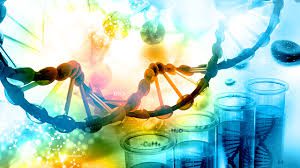 In other countries, we can expect to see the customization of humans with genome editing children to increase height, improve intelligence, and expand creativity.
In other countries, we can expect to see the customization of humans with genome editing children to increase height, improve intelligence, and expand creativity.
4) Competition: The democratization of this technology cannot be understated.  We will compete with states, non-state groups, and super-empowered individuals who will have access to a full range of human enhancement capabilities and genetic editing tools. China is at parity with the US in this space, but more willing to take technologies to clinical trials.
We will compete with states, non-state groups, and super-empowered individuals who will have access to a full range of human enhancement capabilities and genetic editing tools. China is at parity with the US in this space, but more willing to take technologies to clinical trials.
 5) Ethics: The full range of bio tools will be available in the US. They will initially be approved because of their disease curing properties and the ability to improve quality of life for an aging population. They will then be normed into our population. We can expect to see a Soldier enter a recruiting station after some kind of physical enhancement in the next decade, if not sooner. In the Deep Future, the concept of personhood will be challenged.
5) Ethics: The full range of bio tools will be available in the US. They will initially be approved because of their disease curing properties and the ability to improve quality of life for an aging population. They will then be normed into our population. We can expect to see a Soldier enter a recruiting station after some kind of physical enhancement in the next decade, if not sooner. In the Deep Future, the concept of personhood will be challenged.
Mad Scientist is producing a range of products to transfer what we learned from the Bio Convergence and Soldier 2050 Conference out to the Army. We will have videos of the conference presentations posted online here within 10 days, as well as several podcasts posted at Modern War Institute, starting on 28 March 2018. The Bio Convergence and Soldier 2050 Conference Final Report will be posted here within 45 days.
Note that the associated SciTech Futures Bio Convergence Game remains open until 16 March 2018 — share your ideas on-line about the future, collaborate with (and challenge) other players, and bid on the most compelling concepts in this online marketplace.
Read our Mad Scientist Soldier 2050 Call for Ideas finalists’ submissions here, graciously hosted by our colleagues at Small Wars Journal.
